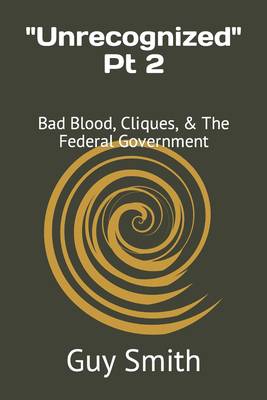
- Afhalen na 1 uur in een winkel met voorraad
- Gratis thuislevering in België vanaf € 30
- Ruim aanbod met 7 miljoen producten
- Afhalen na 1 uur in een winkel met voorraad
- Gratis thuislevering in België vanaf € 30
- Ruim aanbod met 7 miljoen producten
Zoeken
€ 17,95
+ 35 punten
Omschrijving
This work was written as an give a view into some of the history on a few of the "unrecognized" factions of indigenous peoples within the Arkansas and Missouri Ozarks. In this work I go over the current state of affairs for the numerous underrepresented, and underdocumented, indigenous communities that still exist within the Ozarks as they pertain to indigenous communities, and how the views of the community have grown in response to exclution. The problems that have arose within Indian Country do not exist in a vacuum, as many topics of racism and the experiences of being people of color overlap for many ethnic groups being shaped by that of mass American culture, Native Americans do have their own unique circumstances in regard to dealings with the United States government. Looking from the prospective of the oppressed groups this book goes through a myriad of topics, ranging from definitions of racial identity, historical representation, impacts of racism on an muted group, a tribal nations place in history, or how a tribes place in a history book can give it more reverence as authentic enity do to Ethnocentrism of past scholarship, to how these factors are now being used to oppress those labeled as "Unrecognized" tribal factions in federal politics; as now various federally "Recognized" groups, and thier individual tribal members, act as gatekeepers within government towards smaller indigenous communities, often times for monetary and political gains, using the Bureau of Indain Affairs as the means by which they can enforce their wills in our modern times. These writings attempt to open up dialog about the serious issues that come with the Federal Acknowledgment Process, or FAP, as it stands now; being that it is a process that is curated by the federally acknowledged groups themselves, as is thoroughly proved in this book, at the expense of the populations it was set up to help in the first place. These writings also provide some reasons for how these problems within the BIA, and Indian Country as a whole, have come to be by analyzing the various ideas of what it means to be "Indian" as a legal term in modern American society, while as wel as having a healthy discussion about, "what is the indigenous identity in America today?", the effects and affects of historical erasure on populations being that of both the ingroup effected and the affects of the erasure on the outgroups as well, and the impact of the Civil Rights Movement in terms of how it played out for the Federal Acknowledgment process and the countless inter displaced Indigenous peoples in America who suffer now as a result from these shits in political tides. We will examine how all these factors play a role for indigenous nations in terms of their own power and control in the greater governmental political world that is the federal government in modern times. This is part two of two.
Specificaties
Betrokkenen
- Auteur(s):
- Uitgeverij:
Inhoud
- Aantal bladzijden:
- 190
- Taal:
- Engels
Eigenschappen
- Productcode (EAN):
- 9798435481815
- Verschijningsdatum:
- 18/03/2022
- Uitvoering:
- Paperback
- Formaat:
- Trade paperback (VS)
- Afmetingen:
- 152 mm x 229 mm
- Gewicht:
- 263 g

Alleen bij Standaard Boekhandel
+ 35 punten op je klantenkaart van Standaard Boekhandel
Beoordelingen
We publiceren alleen reviews die voldoen aan de voorwaarden voor reviews. Bekijk onze voorwaarden voor reviews.











